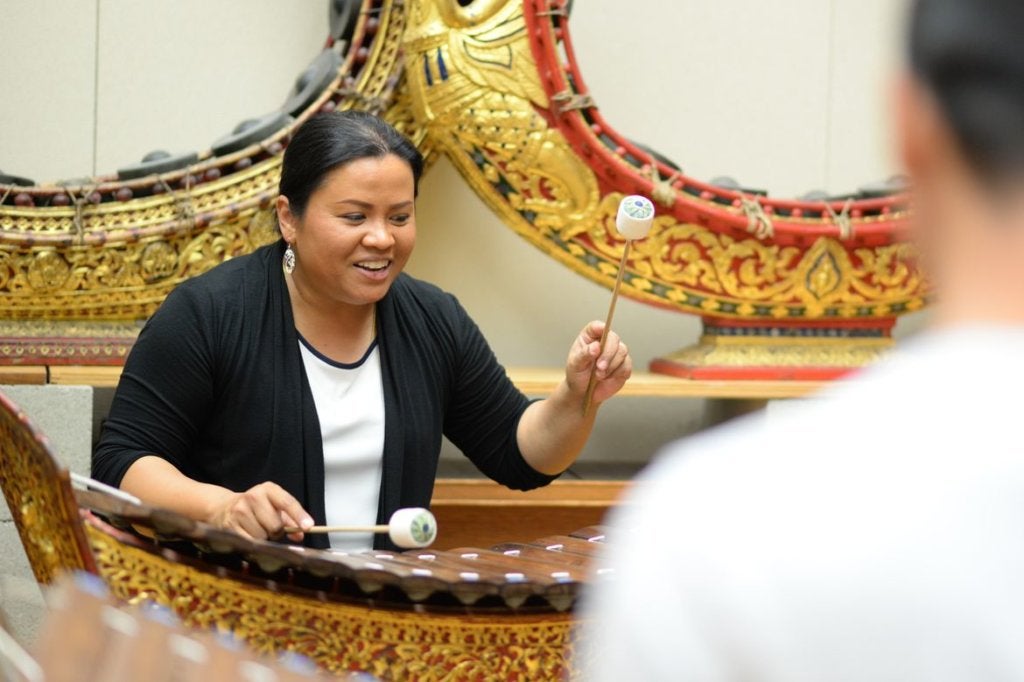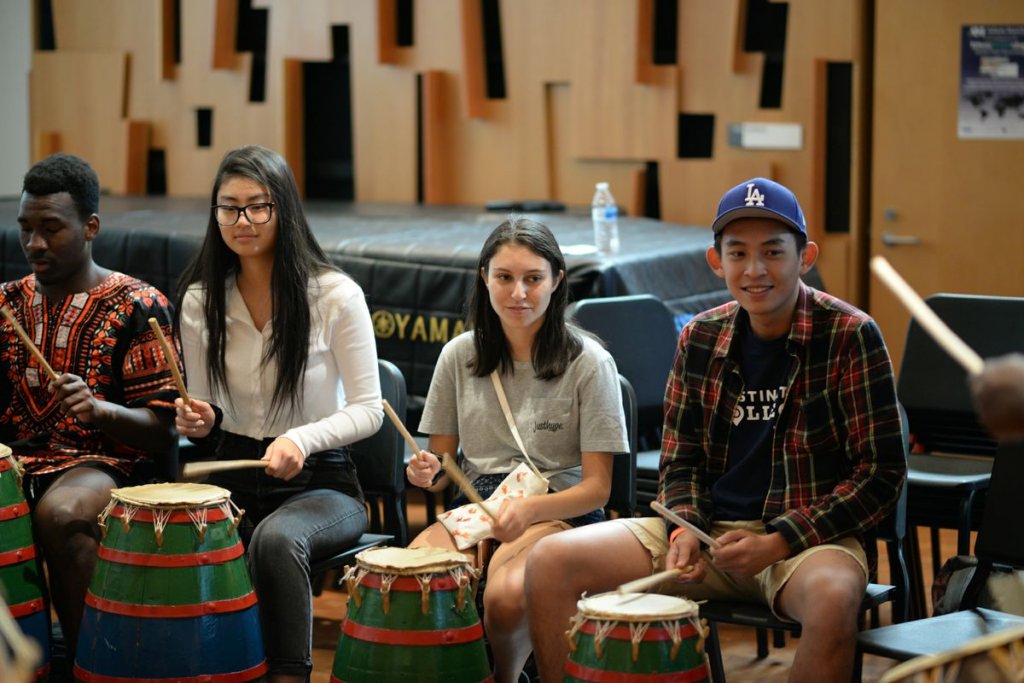
Five years of planning and development across international waters have culminated in the online publication of 58 historical field collections held by the UCLA Ethnomusicology Archive. The project, Ethnomusicology: Global Field Recordings, was a collaboration between the World Music Center at the UCLA Herb Alpert School of Music, home of the archive, and Adam Matthew Digital, an academic publisher based in the United Kingdom.
An invaluable source of ethnomusicological research, the collection features 15,000 audio field recordings and interviews, plus film footage and more than 8000 images of field notebooks, slides, correspondence and ephemera from around the world that are now accessible to anyone with an internet connection.
“This project allows the UCLA Ethnomusicology Archive, which has been crucial in championing the study and performance of music from all over the world for decades, to share its experience and research with other institutions,” said Khal Rudin, managing director of Adam Matthew Digital.
The archive was especially keen to work with Adam Matthew for the example they set by repatriating copies of materials to originating communities.
“This is one way to serve the diverse groups represented in the archive’s collections and contribute to their own heritage preservation,” said Helen Rees, faculty director of the UCLA Department of Ethnomusicology’s World Music Center.
Among the materials researchers can access: fieldwork from Java collected by Mantle Hood, the founder of the Institute for Ethnomusicology at UCLA (now the department of ethnomusicology); recordings of folk song and bluegrass from the United States collected by UCLA Folklore and Mythology program founder D. K.Wilgus; fieldwork from Ghana, Nigeria and Jamaica collected by UCLA Professor Emerita of Ethnomusicology Jacqueline Cogdell DjeDje; fieldwork from Thailand by the UCLA Archive of Popular American Music founder David Morton; and fieldwork from the Philippines collected by ethnomusicology alumnus Jose Maceda, who also established a program in ethnomusicology at the University of the Philippines.
Visitors to the global field recordings website will also gain a view into the cultural and social lives of the represented communities, among them groups from:
● Africa (Benin, Ghana, Malawi, Morocco, Nigeria, Togo, Uganda, Zimbabwe)
● Asia (Bali, Burma/Myanmar, northern and eastern China, Hong Kong, India, Indonesia, Japan, Java, Korea, Kyrgyzstan, Laos, Pakistan, Philippines, Sikkim, Thailand, Tibet)
● the Caribbean (Jamaica, Puerto Rico)
● Central and South America (Belize, Chile, Guatemala, Honduras, Mexico, Suriname)
● Europe/Caucasus (Bulgaria, Georgia, Greece, Romania, Sephardic communities, Spain)
● the Middle East (Iran, Kurdistan)
● North America (including rap, bluegrass, powwow music from Michigan, and musical traditions from Native Alaskan, Oklahoma Cherokee, and Armenian American communities)
● Oceania (Papua New Guinea)
“Bringing original field recordings and associated documentation to life for scholars and students at institutions around the world is completely different from presenting them with a neatly processed commercial textbook,” Rees said. “They get to experience and work with the complexity of collections from the last 60 years, and to see how fieldnotes, photographs and recordings all play complementary and crucial roles in documenting traditions.”

.
The school of music celebrated the launch of the project at an event held in conjunction with World Day for Audiovisual Heritage, which honors audiovisual preservation professionals and institutions that safeguard heritage for future generations. Publishing the Archive—The Ethnomusicology Archive/Adam Matthew Digital Project of 2019 featured special guest speaker Anthony Seeger, emeritus distinguished professor and emeritus director of Smithsonian Folkways Recordings, at a day-long symposium of lectures and ensemble workshops. Seeger reminded those assembled that archivists throughout the world have sacrificed their lives in safe-keeping cultural heritage from destructive human forces.
An evening concert brought the historical collections to life with performances of traditional music of Thailand as inspired by the David Morton collection and Maya marimba music related to a recording by ethnomusicology alumna Linda O’Brien-Rothe. The concert culminated in a performance of southern Philippine music by the Pakaraguian Kulingtang Ensemble as a tribute to the Jose Maceda collection.
Workshops in the afternoon offered participants the opportunity to try their hand at four traditions featured in the project: Balinese gamelan, Persian classical music, Thai classical music, and Ghanaian drumming.
“As individuals, our stories will outlive us, but as an archivist, I have the rare opportunity to be a steward for recordings representing the heritages and traditions of many peoples,” said Maureen Russell, adjunct professor of ethnomusicology at UCLA and archivist. “It’s a humbling responsibility, but also one of the reasons that I tell people that I have the best job in the world.”
Ethnomusicology: Global Field Recordings is accessible from public computers in the Ethnomusicology Archive, UCLA Libraries or via UCLA’s wireless networks. Current UCLA students, staff and faculty can access it from off-campus by using the UCLA VPN or proxy server. Any institution that wishes to request a free trial should contact Adam Matthew Digital.
Please contact archivist Maureen Russell for additional information.
This announcement was originally published on the UCLA Newsroom.